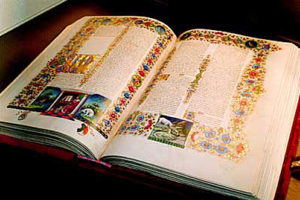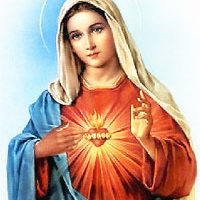Category: Catholic Faith
“Come, let us worship Christ the Lord, Who for our sake endured temptation and suffering.” – Catholic Divine Office/ Liturgy of the Hours
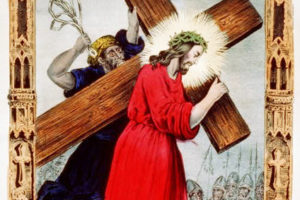
[The Divine Office, or Liturgy of the Hours, begins the Liturgical Day with “A Call to Praise God” in the form of the Invitatory Psalm, usually Psalm 95, in stanzas, or strophes, interspersed with an antiphon. For Sundays and weekdays during Lent, from Ash Wednesday to the Saturday of the Fifth Week of Lent, the antiphon is “Come, let us worship Christ the Lord, Who for our sake endured temptation and suffering.” or “Today if you hear the Voice of the Lord, harden not your hearts.” Below, the first alternative is set out with the stanzas of the Psalm.]
[Prior to the Psalm is an introductory phrase taken from Psalm 51 and a quote from the Letter to the Hebrews]
Lord, open my lips.
— And my mouth will proclaim Your Praise.
Encourage each other daily, while it is still today (Hebrews 3:13)
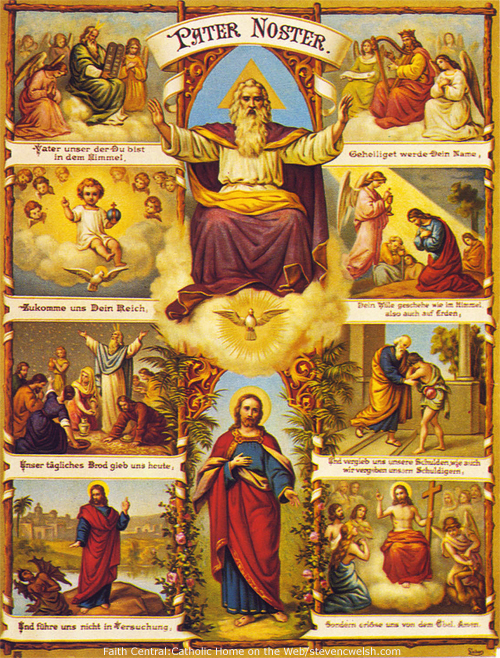 Come, let us worship Christ the Lord, Who for our sake endured temptation and suffering.
Come, let us worship Christ the Lord, Who for our sake endured temptation and suffering.
Come, let us sing to the Lord
and shout with joy to the Rock Who Saves us.
Let us approach Him with Praise and Thanksgiving
and sing joyful songs to the Lord.
Come, let us worship Christ the Lord, Who for our sake endured temptation and suffering.
The Lord is God, the Mighty God,
the Great King over all the gods,
He holds in His Hands the depths of the earth
and the highest mountains as well.
He made the sea; it belongs to Him,
the dry land, too, for it was formed by His Hands.
Come, let us worship Christ the Lord, Who for our sake endured temptation and suffering.
Come then, let us bow down and worship,
bending the knee before the Lord, our Maker.
For He is our God, and we are His People,
the Flock He Shepherds.
Today, listen to the Voice of the Lord:
Do not grow stubborn, as your fathers did
in the wilderness,
when at Meribah and Massah
they challenged me and provoked me,
Although they had seen all of my works.
Come, let us worship Christ the Lord, Who for our sake endured temptation and suffering.
Forty years I endured that generation.
I said, “They are a People whose hearts go astray
and they do not know My Ways.”
So I swore in my anger,
“The shall not enter into my rest.”
Glory to the Father, and to the Son, and to the Holy Spirit:
as it was in the beginning, is now, and will be for ever.
Amen.
Come, let us worship Christ the Lord, Who for our sake endured temptation and suffering.
[The Divine Office also indicates that Psalm 100, Psalm 67 or Psalm 24 may be used, and indicates that the psalm may be omitted when the Invitatory precedes Morning Prayer. An added note provides that, in individual recitation, the antiphon may be said once, at the beginning, rather than with each strophe.]
[As can be seen, the psalm presents a a wide-ranging encounter with God’s Greatness and our Relationship to Him. We are exhorted to approach God, to sing and shout with joy, praise and thanksgiving. God is Almighty and our Creator, indeed holding creation in His Hands.
We are to worship and follow Him in His Greatness. Yet He also is a Person Whose Voice we are to listen to and follow, Who Shepherds us as His Flock. At times, there are those who stubbornly failed to follow him, challenging Him and provoking His Wrath. In particular, with the reference to Meribah and Massah, the psalm recalls the Israelites grumbling and challenging God at points during their exodus in the desert.]
“Come, let us worship before the Lord, our Maker” – Catholic Divine Office/ Liturgy of the Hours
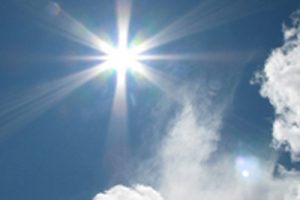
[The Divine Office, or Liturgy of the Hours, begins the Liturgical Day with “A Call to Praise God” in the form of the Invitatory Psalm, usually Psalm 95, in stanzas, or strophes, interspersed with an antiphon. For Sundays and weekdays during Lent, from Ash Wednesday to the Saturday of the Fifth Week of Lent, the antiphon is “Come, let us worship before the Lord, our Maker.” Below, the first alternative is set out with the stanzas of the Psalm.]
[Prior to the Psalm is an introductory phrase taken from Psalm 51 and a quote from the Letter to the Hebrews]
Lord, open my lips.
— And my mouth will proclaim Your Praise.
Encourage each other daily, while it is still today (Hebrews 3:13)
 Come, let us worship before the Lord, our Maker.
Come, let us worship before the Lord, our Maker.
Come, let us sing to the Lord
and shout with joy to the Rock Who Saves us.
Let us approach Him with Praise and Thanksgiving
and sing joyful songs to the Lord.
Come, let us worship before the Lord, our Maker.
The Lord is God, the Mighty God,
the Great King over all the gods,
He holds in His Hands the depths of the earth
and the highest mountains as well.
He made the sea; it belongs to Him,
the dry land, too, for it was formed by His Hands.
Come, let us worship before the Lord, our Maker.
Come then, let us bow down and worship,
bending the knee before the Lord, our Maker.
For He is our God, and we are His People,
the Flock He Shepherds.
Today, listen to the Voice of the Lord:
Do not grow stubborn, as your fathers did
in the wilderness,
when at Meribah and Massah
they challenged me and provoked me,
Although they had seen all of my works.
Come, let us worship before the Lord, our Maker.
Forty years I endured that generation.
I said, “They are a People whose hearts go astray
and they do not know My Ways.”
So I swore in my anger,
“The shall not enter into my rest.”
Glory to the Father, and to the Son, and to the Holy Spirit:
as it was in the beginning, is now, and will be for ever.
Amen.
Come, let us worship before the Lord, our Maker.
[The Divine Office also indicates that Psalm 100, Psalm 67 or Psalm 24 may be used, and indicates that the psalm may be omitted when the Invitatory precedes Morning Prayer. An added note provides that, in individual recitation, the antiphon may be said once, at the beginning, rather than with each strophe.]
[As can be seen, the psalm presents a a wide-ranging encounter with God’s Greatness and our Relationship to Him. We are exhorted to approach God, to sing and shout with joy, praise and thanksgiving. God is Almighty and our Creator, indeed holding creation in His Hands.
We are to worship and follow Him in His Greatness. Yet He also is a Person Whose Voice we are to listen to and follow, Who Shepherds us as His Flock. At times, there are those who stubbornly failed to follow him, challenging Him and provoking His Wrath. In particular, with the reference to Meribah and Massah, the psalm recalls the Israelites grumbling and challenging God at points during their exodus in the desert.]
CATHOLIC MASS READINGS: Twenty-Third Sunday in Ordinary Time 9.8.19 – USCCB/NABRV
CATHOLIC FAITHLINK: “‘No priest may obey’ proposed law, California bishop says” – CNA

“Bishop Michael Barber, S.J., of the Diocese of Oakland, California, has said he would sooner accept arrest and prison than comply with a state law that would force priests to violate the seal of confession. … ‘I will go to jail before I will obey this attack on our religious freedom’ …. ‘Even if this bill passes, no priest may obey it. The protection of your right to confess to God and have your sins forgiven in total privacy must be protected. I urge you to contact your State Senator today to protest this bill.’ …”
CATHOLIC FAITHLINK: “Why the devil hates Mary – especially during exorcisms” – CNA
CATHOLIC MASS VIDEO: Fourth Sunday of Easter 5.12.19 – Basilica of the National Shrine of the Immaculate Conception (Washington, D.C.)
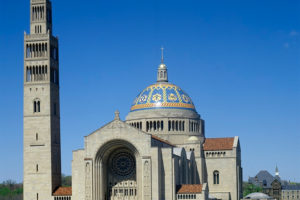
From the Basilica of the National Shrine of the Immaculate Conception in Washington, D.C. [Click here for Mass Readings]
[featured image is file photo]
CATHOLIC MASS VIDEO: Third Sunday of Easter 5.5.19 – Heart of the Nation (Wisconsin)
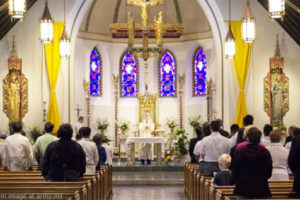
From Heart of the Nation in Wisconsin.
[Click here for Mass Readings]
[featured image is file photo from another time and location]
[featured image is file photo from another time and place]
CATHOLIC MASS VIDEO: Third Sunday of Easter 5.5.19 – Basilica of the National Shrine of the Immaculate Conception (Washington, D.C.)

From the Basilica of the National Shrine of the Immaculate Conception in Washington, D.C. [Click here for Mass Readings]
[featured image is file photo]
CATHOLIC MASS VIDEO: Second Sunday of Easter (Sunday of Divine Mercy) 4.28.19 – Basilica of the National Shrine of the Immaculate Conception (Washington, D.C.)

From the Basilica of the National Shrine of the Immaculate Conception in Washington, D.C. [Click here for Mass Readings]
[featured image is file photo]


